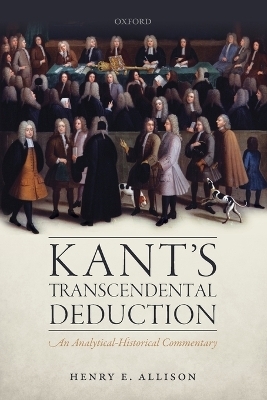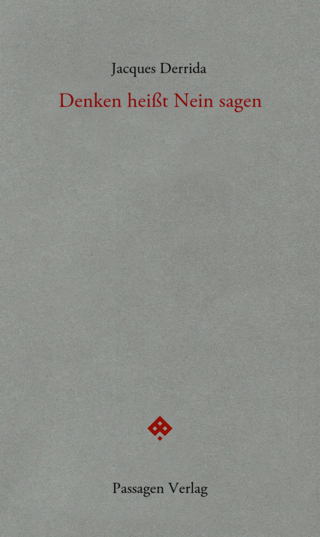
Kant's Transcendental Deduction
Oxford University Press (Verlag)
978-0-19-872486-5 (ISBN)
Henry E. Allison presents an analytical and historical commentary on Kant`s transcendental deduction of the pure concepts of the understanding in the Critique of Pure Reason. He argues that, rather than providing a new solution to an old problem (refuting a global skepticism regarding the objectivity of experience), it addresses a new problem (the role of a priori concepts or categories stemming from the nature of the understanding in grounding this objectivity), and he traces the line of thought that led Kant to the recognition of the significance of this problem in his 'pre-critical' period. Allison locates four decisive steps in this process: the recognition that sensibility and understanding are distinct and irreducible cognitive powers, which Kant referred to as a 'great light' of 1769; the subsequent realization that, though distinct, these powers only yield cognition when they work together, which is referred to as the 'discursivity thesis' and which led directly to the distinction between analytic and synthetic judgments and the problem of the synthetic a priori; the discovery of the necessary unity of apperception as the supreme norm governing discursive cognition; and the recognition, through the influence of Tetens, of the role of the imagination in mediating between sensibility and understanding. In addition to the developmental nature of the account of Kant`s views, two distinctive features of Allison'sreading of the deduction are a defense of Kant`s oft criticized claim that the conformity of appearances to the categories must be unconditionally rather than merely conditionally necessary (the 'non-contingency thesis') and an insistence that the argument cannot be separated from Kant`s transcendental idealism (the 'non-separability thesis').
Henry E. Allison is Emeritus Professor of the University of California, San Diego, and Boston University. He is the author of many books, including Essays on Kant (OUP, 2012), Kant's Groundwork for the Metaphysics of Morals (OUP, 2011), and Custom and Reason in Hume (OUP, 2008), and over seventy-five scholarly articles and reviews.
CHAPTER ONE :KANT'S ANALYTIC METAPHYSICS AND MODEL OF COGNITION IN THE 1760S; CHAPTER TWO: KANT'S INAUGURAL DISSERTATION AND ITS CONTEXT; CHAPTER THREE: THE "SILENT DECADE"; APPENDIX TO CHAPTER THREE: KANT AND TETENS; CHAPER FOUR: SETTING THE STAGE; CHAPTER FIVE: THE A-DEDUCTION: SECTION 2; CHAPER SIX: THE A-DEDUCTION: SECTION 3; CHAPTER SEVEN: THE INTERLUDE; CHAPTER EIGHT: THE B-DEDUCTION (1): SECTIONS 15-20; CHAPTER NINE: THE B-DEDUCTION (2): SECTIONS 21-7; CONCLUSION
| Erscheint lt. Verlag | 30.7.2015 |
|---|---|
| Verlagsort | Oxford |
| Sprache | englisch |
| Maße | 161 x 234 mm |
| Gewicht | 726 g |
| Themenwelt | Geisteswissenschaften ► Philosophie ► Erkenntnistheorie / Wissenschaftstheorie |
| Geisteswissenschaften ► Philosophie ► Geschichte der Philosophie | |
| Geisteswissenschaften ► Philosophie ► Metaphysik / Ontologie | |
| Geisteswissenschaften ► Philosophie ► Philosophie der Neuzeit | |
| ISBN-10 | 0-19-872486-1 / 0198724861 |
| ISBN-13 | 978-0-19-872486-5 / 9780198724865 |
| Zustand | Neuware |
| Informationen gemäß Produktsicherheitsverordnung (GPSR) | |
| Haben Sie eine Frage zum Produkt? |
aus dem Bereich


